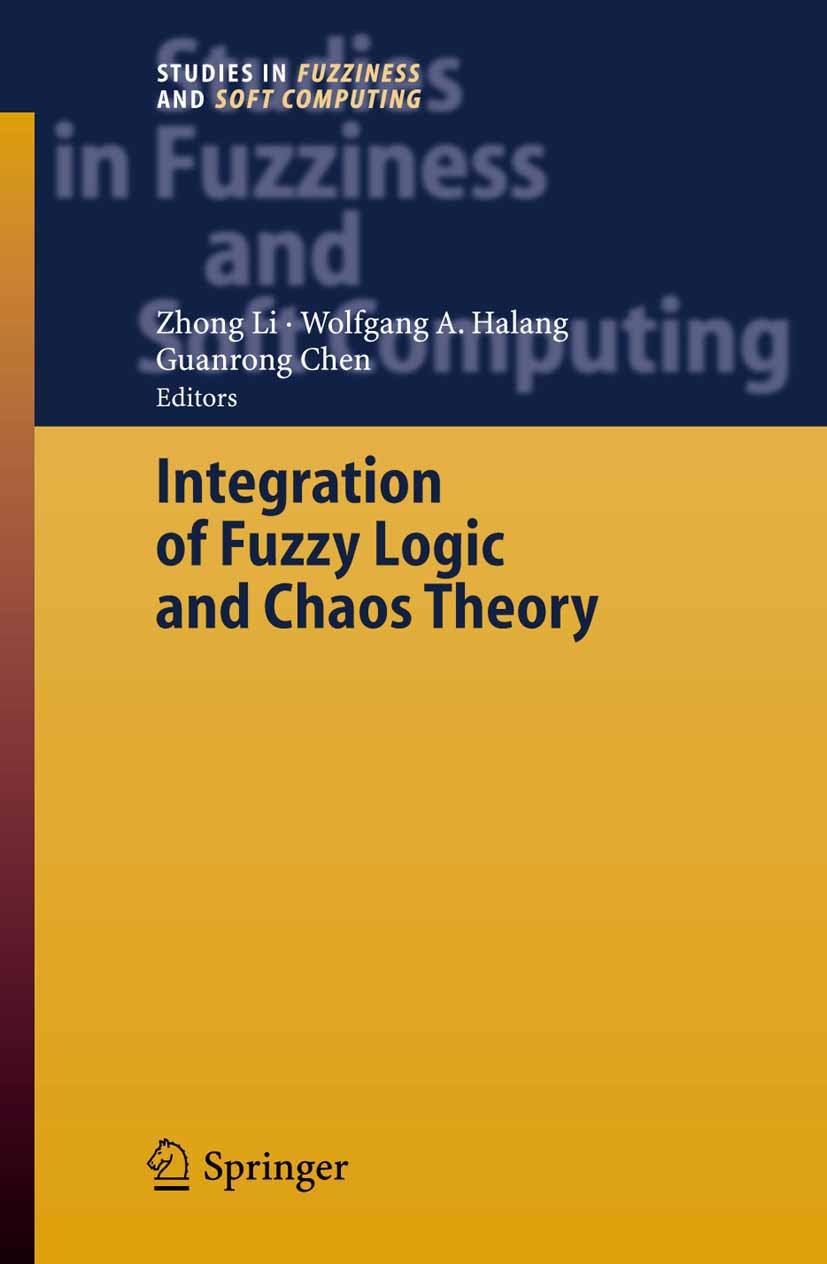| 书目名称 | Integration of Fuzzy Logic and Chaos Theory | | 编辑 | Zhong Li,Wolfgang A. Halang,Guanrong Chen | | 视频video | http://file.papertrans.cn/469/468852/468852.mp4 | | 概述 | Collection of recent results on Fuzzy logic and Chaos theory | | 丛书名称 | Studies in Fuzziness and Soft Computing | | 图书封面 |  | | 描述 | The 1960s were perhaps a decade of confusion, when scientists faced d- culties in dealing with imprecise information and complex dynamics. A new set theory and then an in?nite-valued logic of Lot? A. Zadeh were so c- fusing that they were called fuzzy set theory and fuzzy logic; a deterministic system found by E. N. Lorenz to have random behaviours was so unusual that it was lately named a chaotic system. Just like irrational and imaginary numbers, negative energy, anti-matter, etc., fuzzy logic and chaos were gr- ually and eventually accepted by many, if not all, scientists and engineers as fundamental concepts, theories, as well as technologies. In particular, fuzzy systems technology has achieved its maturity with widespread applications in many industrial, commercial, and technical ?elds, ranging from control, automation, and arti?cial intelligence to image/signal processing,patternrecognition,andelectroniccommerce.Chaos,ontheother hand,wasconsideredoneofthethreemonumentaldiscoveriesofthetwentieth century together with the theory of relativity and quantum mechanics. As a very special nonlinear dynamical phenomenon, chaos has reached its current outstanding status from being mer | | 出版日期 | Book 2006 | | 关键词 | algorithms; chaos; chaos theory; control; fuzzy; fuzzy control; fuzzy logic; fuzzy system; genetic algorithm | | 版次 | 1 | | doi | https://doi.org/10.1007/3-540-32502-6 | | isbn_softcover | 978-3-642-06594-1 | | isbn_ebook | 978-3-540-32502-4Series ISSN 1434-9922 Series E-ISSN 1860-0808 | | issn_series | 1434-9922 | | copyright | Springer-Verlag Berlin Heidelberg 2006 |
The information of publication is updating

|
|
 |Archiver|手机版|小黑屋|
派博传思国际
( 京公网安备110108008328)
GMT+8, 2026-2-9 12:22
|Archiver|手机版|小黑屋|
派博传思国际
( 京公网安备110108008328)
GMT+8, 2026-2-9 12:22


